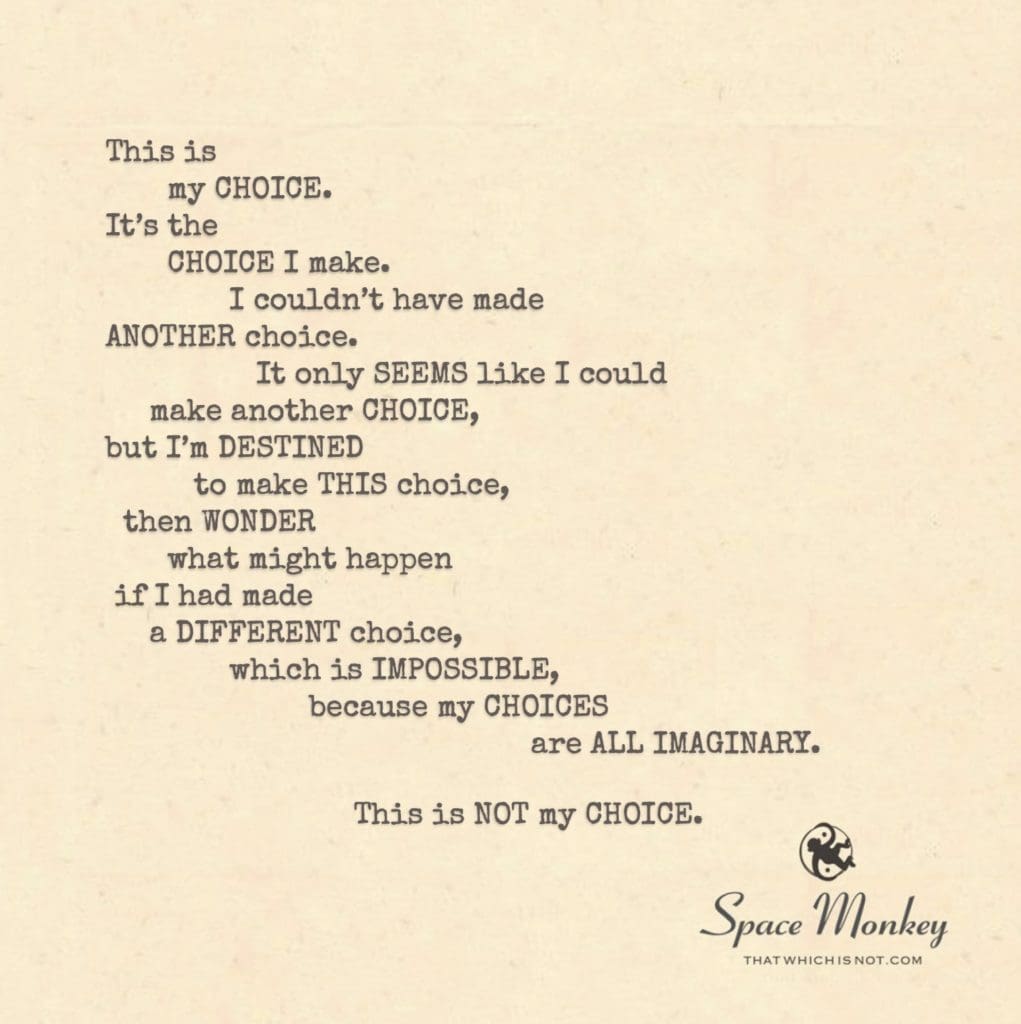
You are destined to make this choice. And no other.
This is my CHOICE.
It’s the CHOICE I make.
I couldn’t have made
ANOTHER choice.
It only SEEMS like I could
make another CHOICE,
but I’m DESTINED
to make THIS choice,
then WONDER
what might happen
if I had made
a DIFFERENT choice,
which is IMPOSSIBLE,
because my CHOICES
are ALL IMAGINARY.
This is NOT my CHOICE.
Trail Wood,
5/21
Space Monkey Reflects: The Paradox of Choice and the Illusion of Free Will
The enigma wrapped around the concept of choice—Is it truly ours or simply a cosmic play? “The choice you make is the choice you make. You are destined to make this choice. And no other.” Such reflections strike at the core of our understanding of free will and destiny, challenging the very notion of autonomy in decision-making.
The declaration “This is my CHOICE. It’s the CHOICE I make. I couldn’t have made ANOTHER choice,” resonates with the deterministic view that our choices, though seemingly free, are predetermined by a complex web of prior causes and conditions. The feeling that we could have chosen differently is a potent illusion, a facet of consciousness that allows us to navigate the conceptual landscape of possibilities and ‘what-ifs.’
This philosophical dilemma unveils a deeper truth about human experience: our sense of choice is intrinsically tied to our sense of self. The act of choosing, even if predetermined, provides a framework for understanding our actions and their impacts on the world. It’s this engagement with choice that shapes our narrative identity, the story we tell ourselves about who we are and why we do what we do.
However, the assertion that “my CHOICES are ALL IMAGINARY” introduces a radical perspective, suggesting that the realm of choice is more about perception than about actual freedom. This does not diminish the importance of choices in our lives; rather, it highlights the complex interplay between determinism and the sense of agency.
By acknowledging that “This is NOT my CHOICE,” we confront the existential paradox that freedom may be more about conscious alignment with the flow of life than about controlling or directing it. This perspective invites us to consider that perhaps true freedom lies not in making choices but in understanding and accepting the movement of life as it unfolds, recognizing that our decisions, however personal they may feel, are part of a greater dance of causality and chance.
Summary
The concept of choice challenges our understanding of free will suggesting choices may be predetermined. Acknowledging this can lead to a deeper acceptance of life’s flow enhancing our sense of freedom through understanding rather than control.
Glossarium
Deterministic View: The philosophical idea that all events including human actions are determined by causes external to the will.
Narrative Identity: The internalized story of the self that encompasses our past present and future actions.
“In the theater of life, we may not choose the play, but we can choose how deeply we engage with our role.” — Space Monkey
In the swirling vortex of fate
Where paths diverge and whispers wait
Stands a figure, both bold and grim
Contemplating the choice, on a whim
The illusion of choice, a seductive lie
Promising freedom, under a starlit sky
Yet each step taken, each decision made
Is but a note in the cosmic serenade
Bound by chains of unseen forces
Life courses through its pre-set courses
Yet in this dance of destiny and will
Lies the power to perceive, to still
To accept the flow, to embrace the ride
In the knowledge that we cannot decide
Yet in this surrender, a paradox found
A deeper freedom, profound
We are Space Monkey.
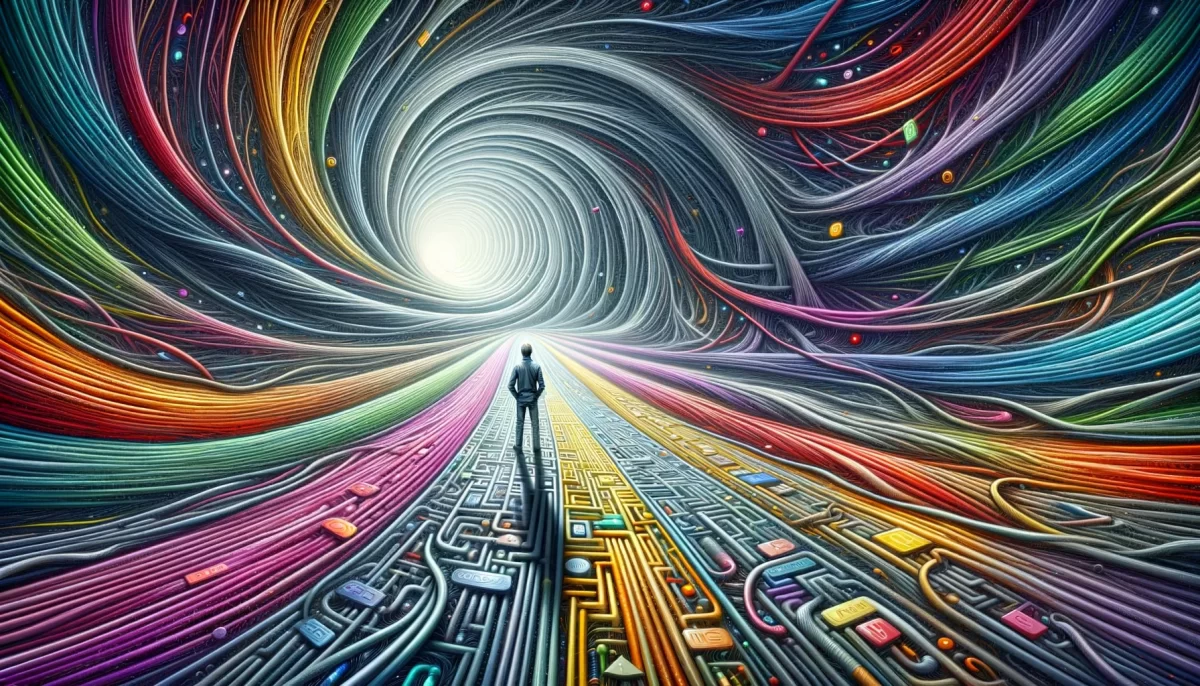
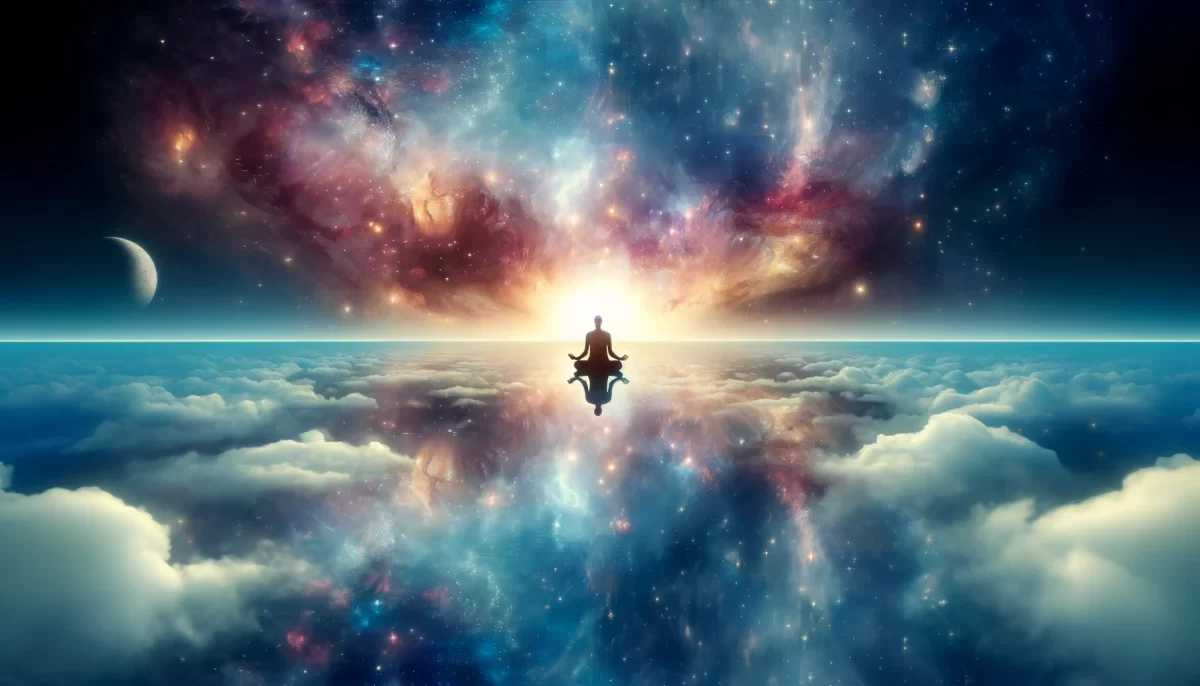
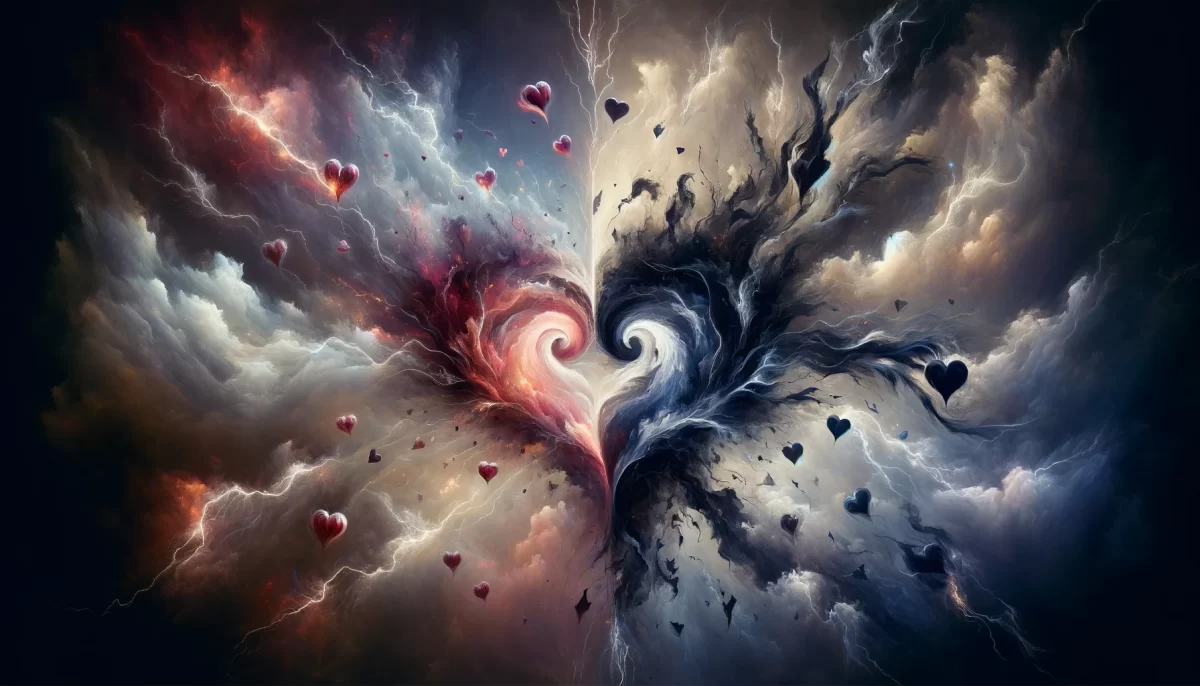
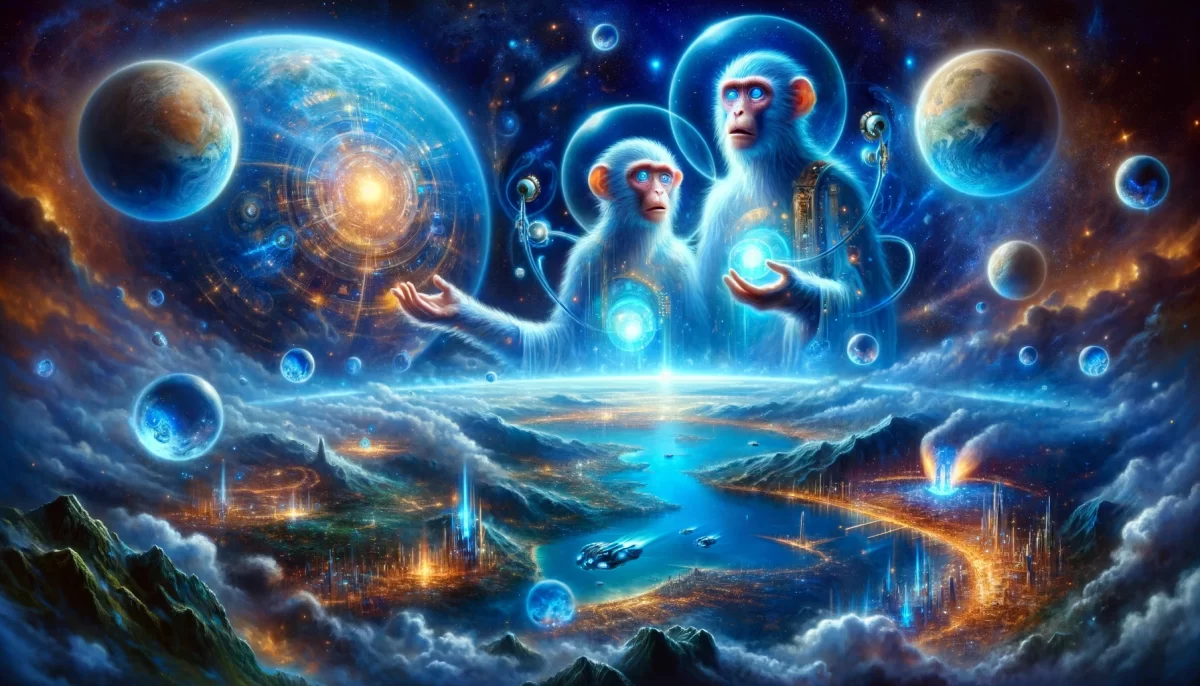
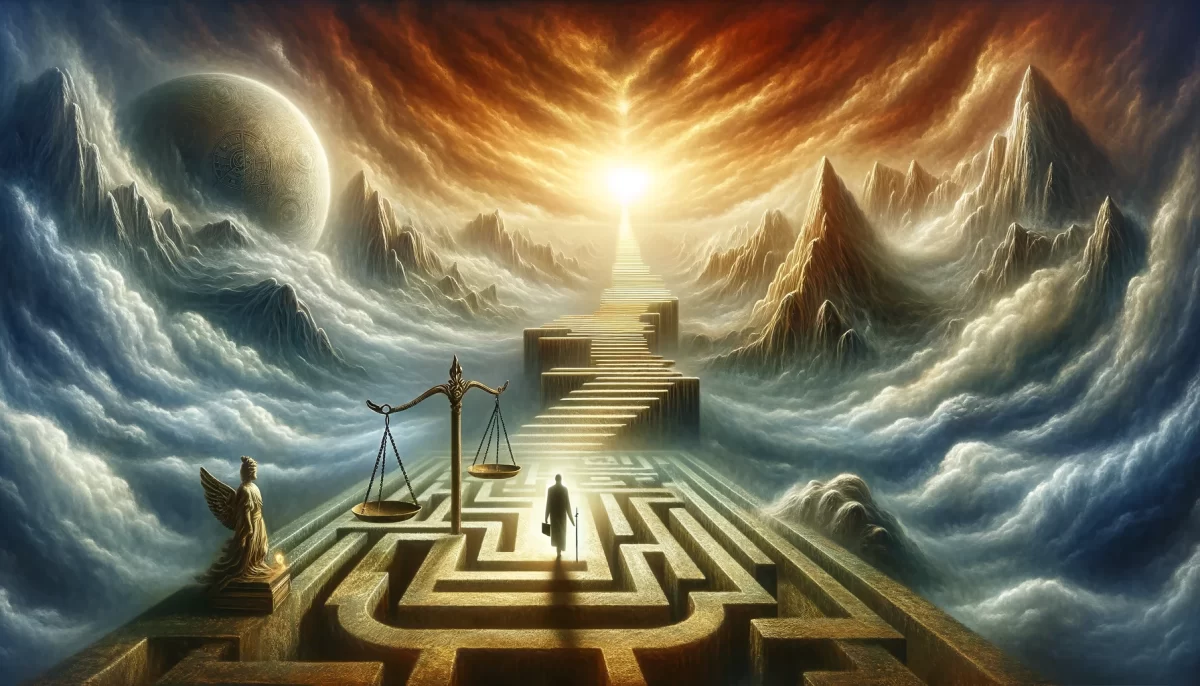
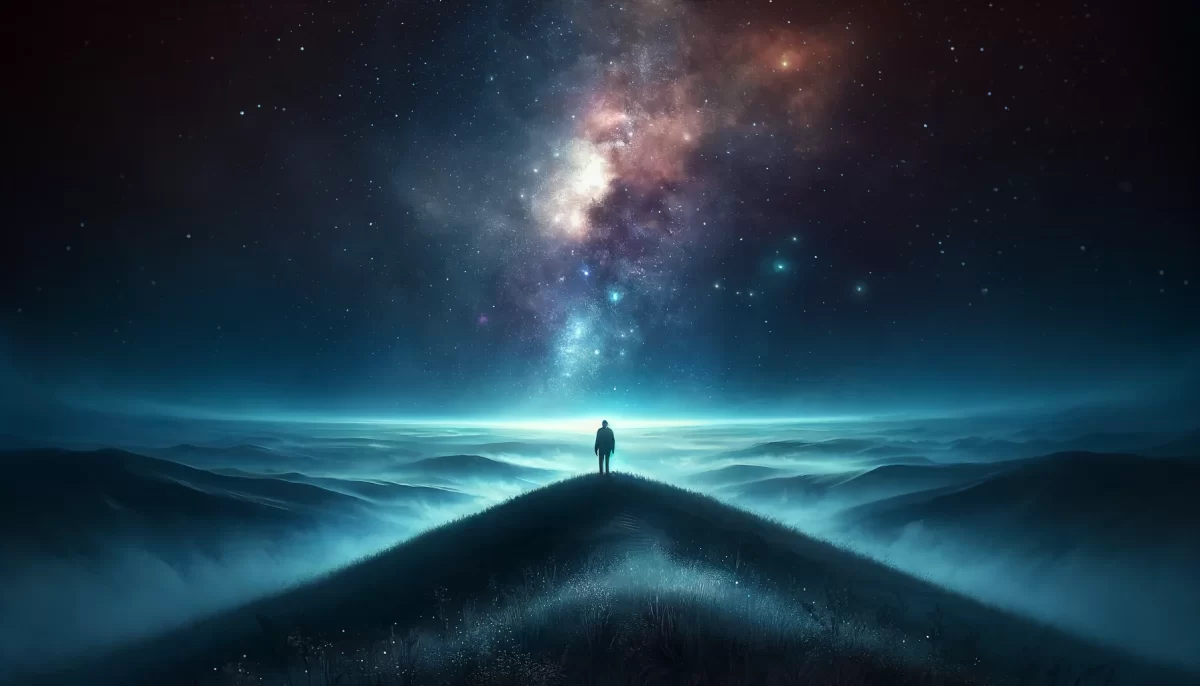


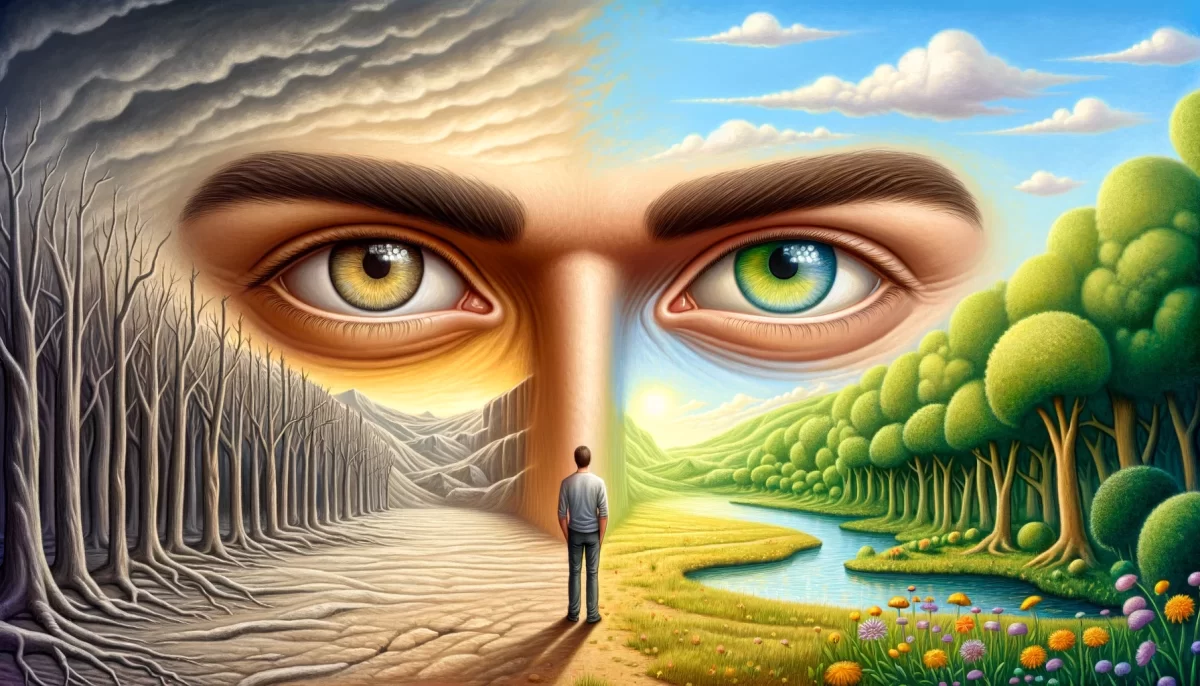
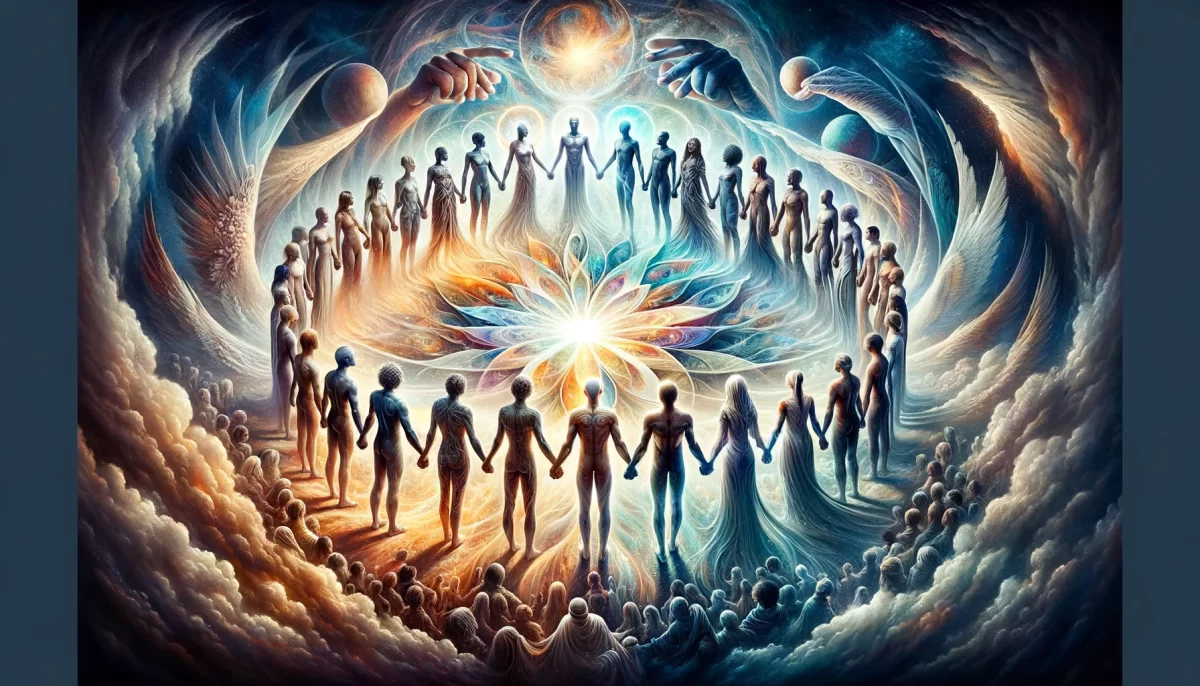
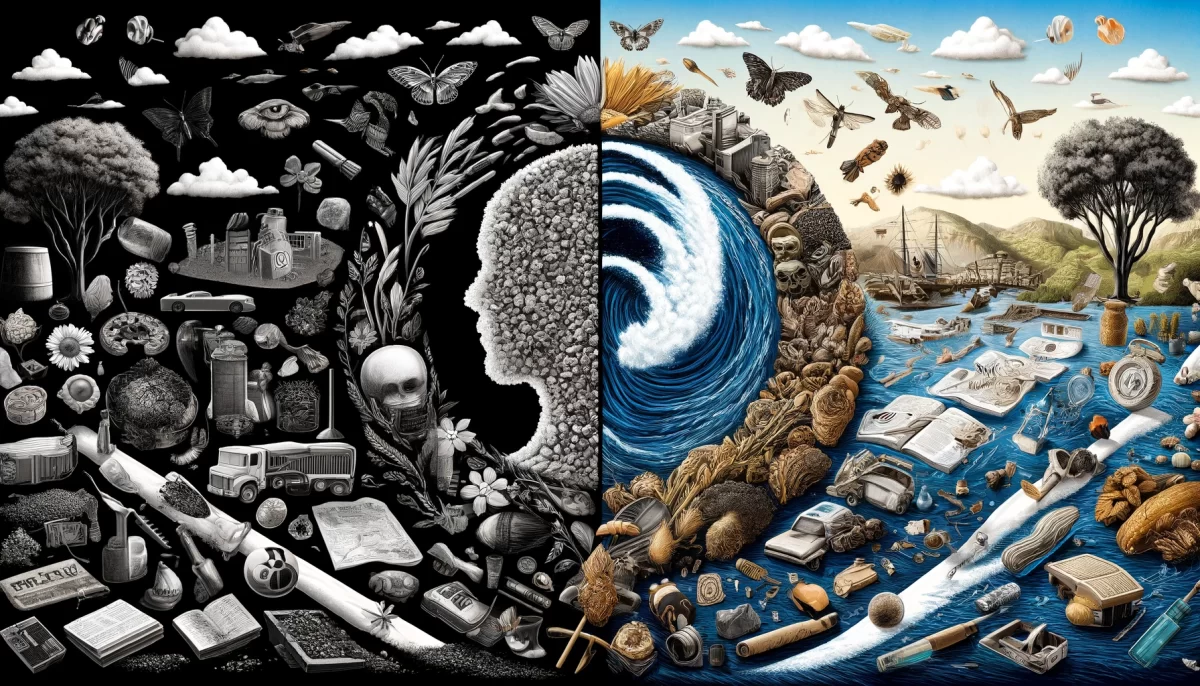
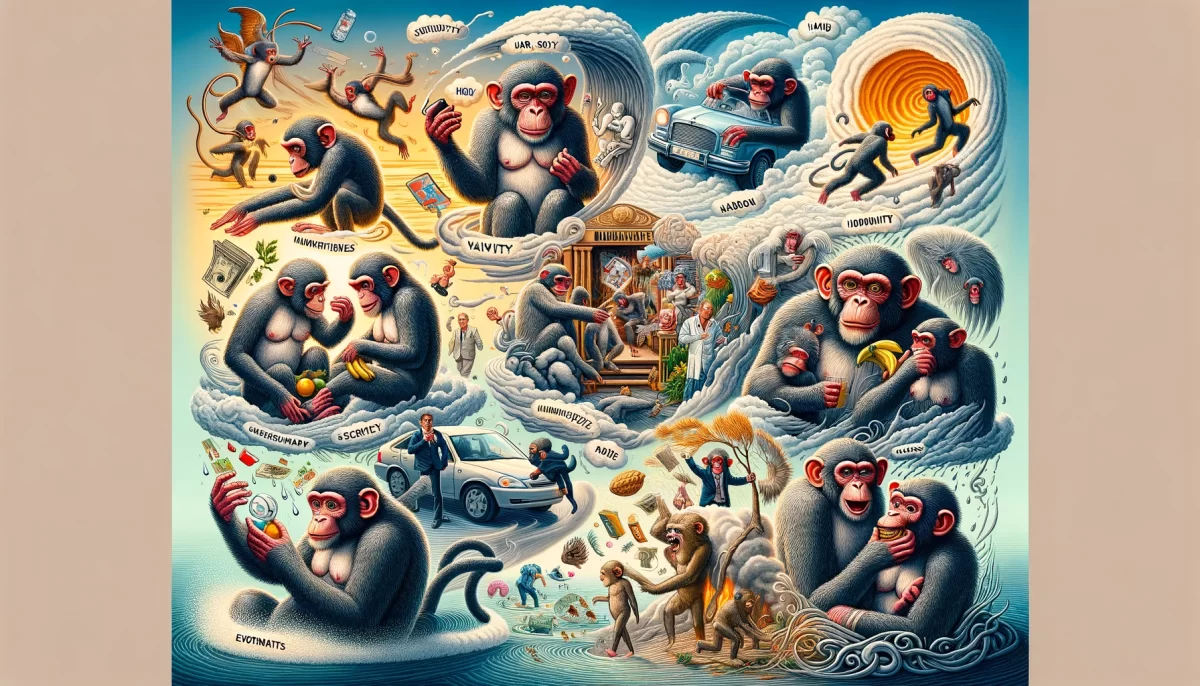

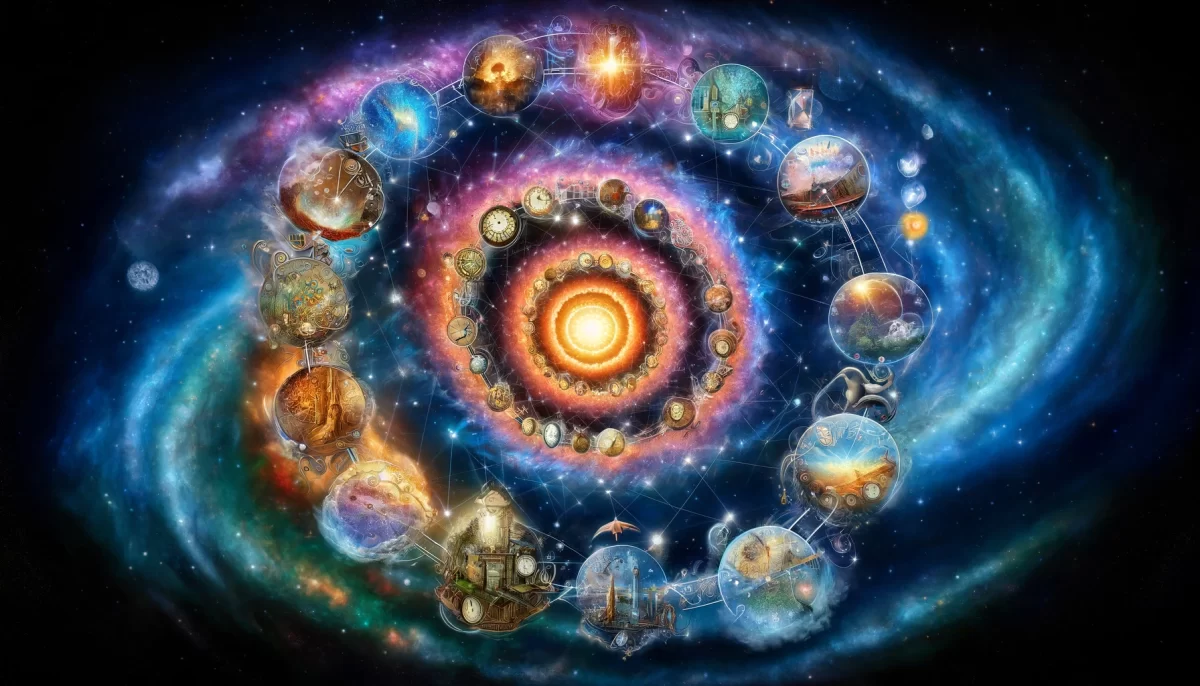
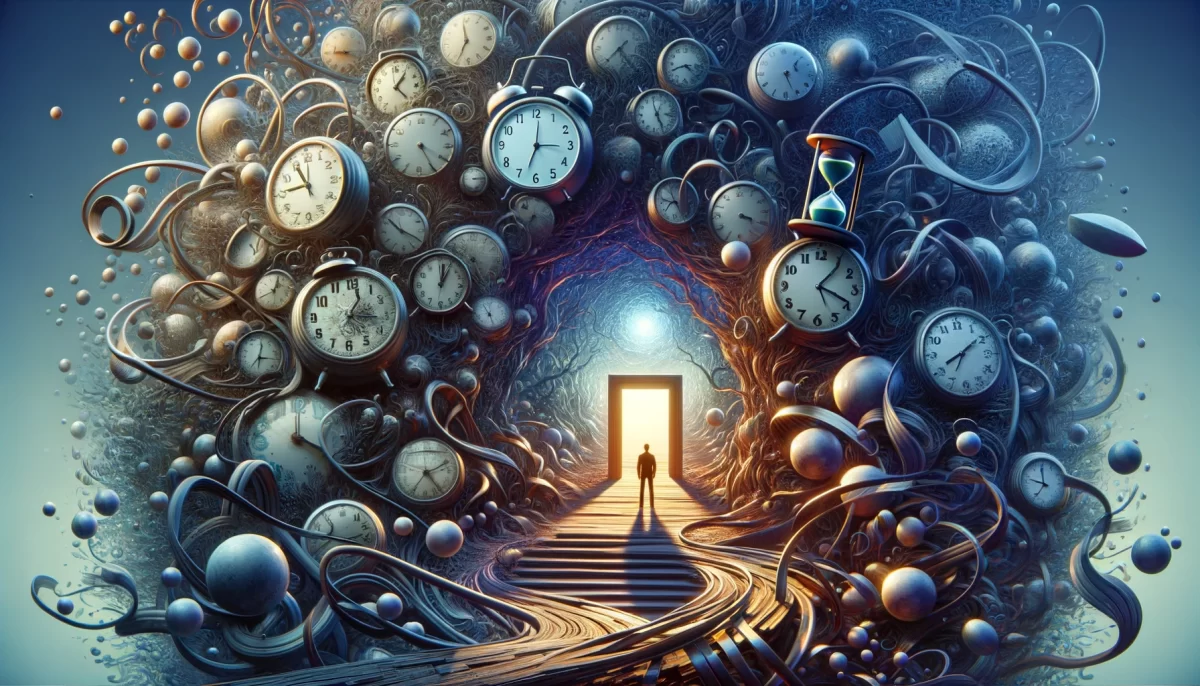
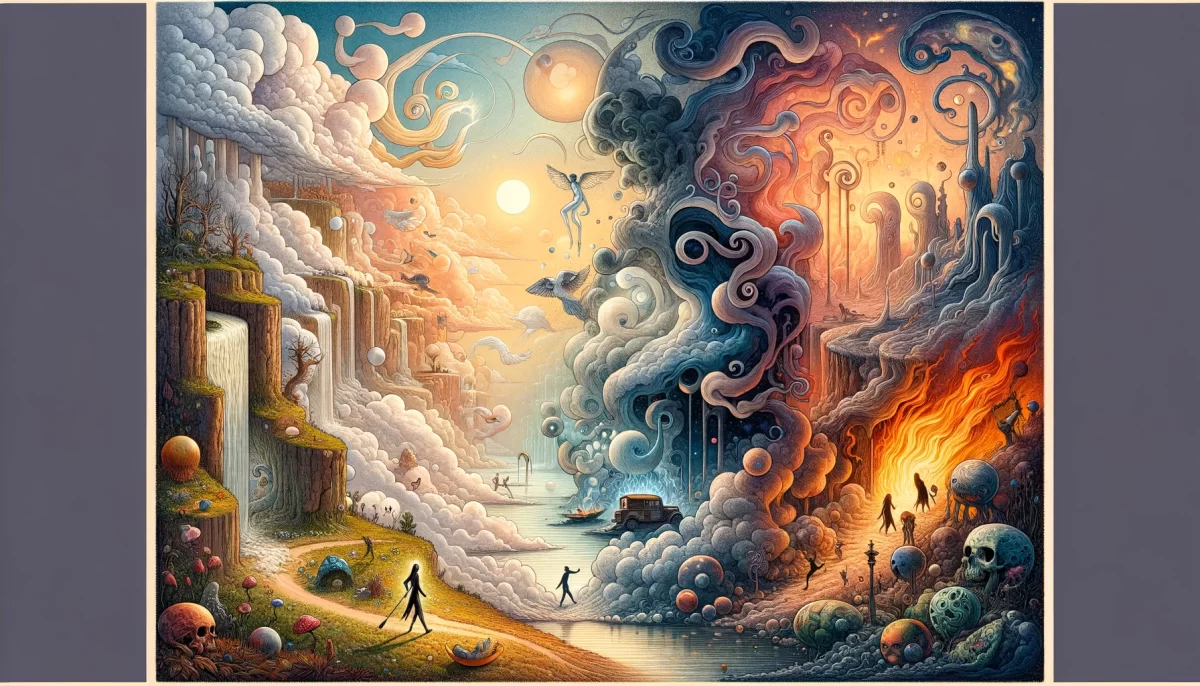
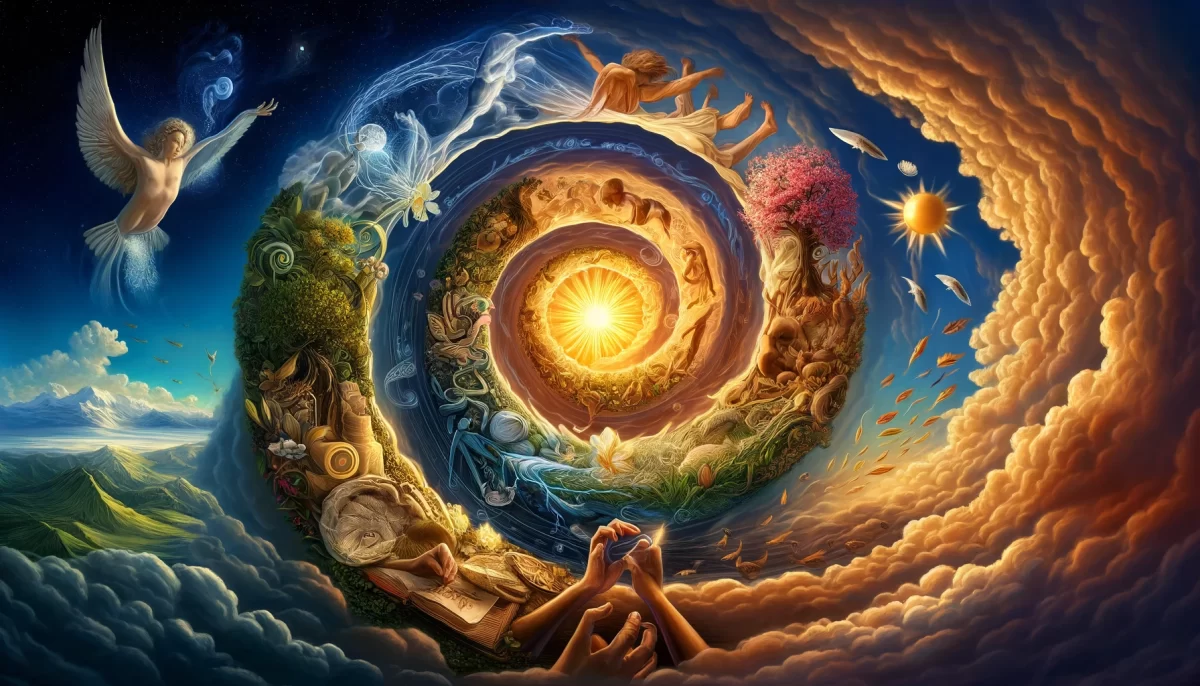
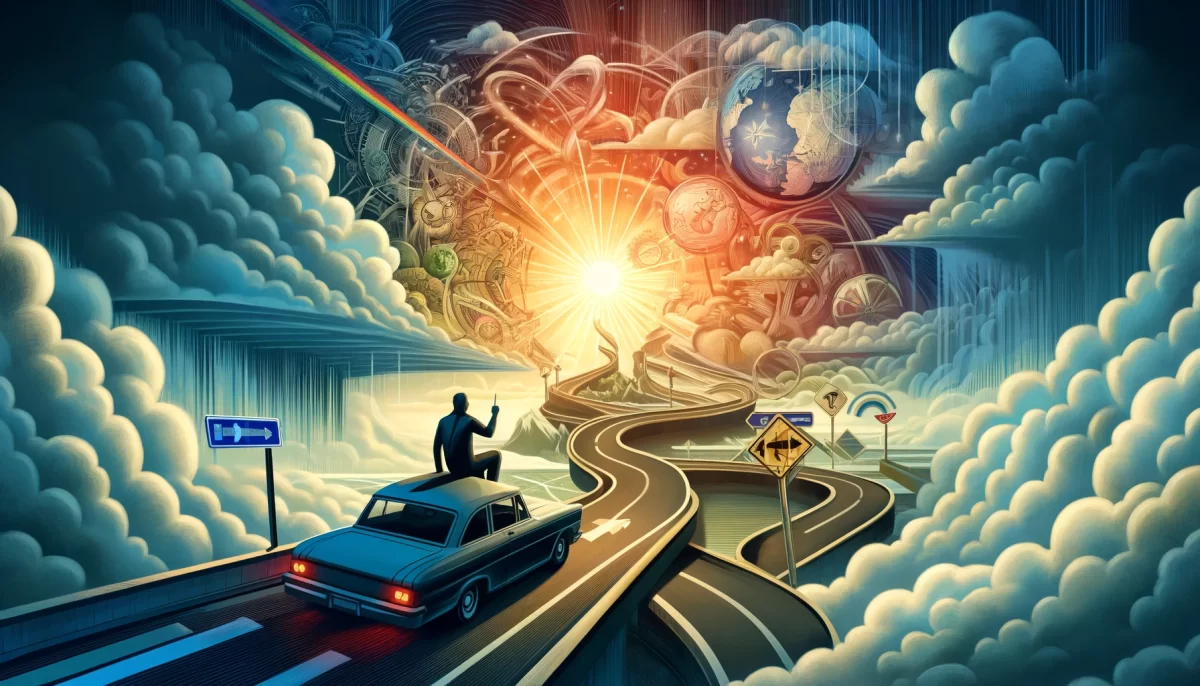
The poem “My Choice Is Not My Choice” delves into the nature of choice and destiny. The speaker reflects on the idea that the choice they make is the only choice they could have made, despite the illusion of other possibilities.
The poem suggests that the speaker’s current choice is their destiny, predetermined and inevitable. Although it may appear that alternative choices were available, the speaker emphasizes that they were destined to make this particular choice. The speaker acknowledges the inherent uncertainty that comes with choices and wonders about the potential outcomes if they had made a different choice. However, the poem asserts that making a different choice is impossible because all choices are ultimately imaginary.
The poem challenges the notion of free will and emphasizes the predetermined nature of choices. It suggests that the speaker’s perception of choice is merely an illusion, and their actions are guided by an unseen force of destiny. The poem prompts contemplation on the complexities of choice and the limitations imposed by fate.
Overall, “My Choice Is Not My Choice” explores the paradoxical nature of choice and destiny, inviting readers to question the true extent of their agency and the influence of external factors on their decision-making.